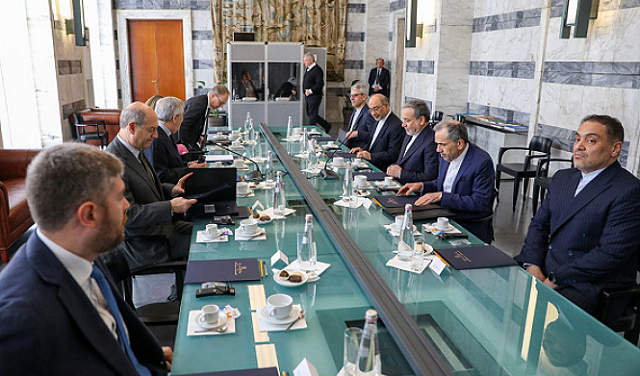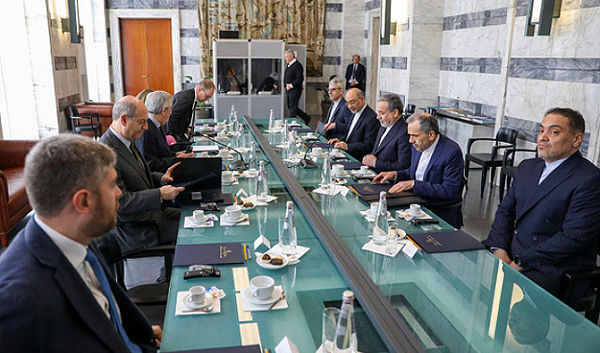The United States and Iran concluded a fourth round of nuclear talks in the Omani capital, Muscat, amid cautious optimism and assurances from both sides that the dialogue would continue.
Although no decisive breakthrough was achieved during Sunday's sessions, statements issued by both delegations expressed general satisfaction with the progress of the negotiations, raising hopes that a fifth round could be held soon.
Iranian Foreign Minister Abbas Araqchi indicated that Iran is prepared to consider accepting temporary restrictions on the level and volume of uranium enrichment as part of confidence-building measures between Tehran and the West, marking a significant development in Iran's position.
Araghchi described the negotiations as "difficult but beneficial," stressing that his country remains committed to a diplomatic solution.
For its part, the US administration expressed satisfaction with the progress of the talks, describing the latest round as "encouraging." US officials emphasized that the progress achieved paves the way for a more comprehensive agreement addressing the nuclear, humanitarian, and regional issues.
This tour is an extension of diplomatic efforts that have been ongoing for several months, under the auspices of active Omani mediation and with the support of other international parties, including the European Union and Qatar.
The Sultanate of Oman plays a pivotal role in providing a neutral environment to bring the two sides closer together, at a time when regional and international capitals are seeking to curb escalating tensions in the Gulf region.
In contrast, these negotiations face strong opposition from the Israeli government, which views any potential agreement as a threat to its national security.
According to diplomatic sources, Tel Aviv has intensified its contacts with its allies in Washington to pressure them to obstruct any US-Iranian rapprochement that might lead to the easing of sanctions or the revival of the previous nuclear agreement.
In this context, Israeli Prime Minister Benjamin Netanyahu strongly criticized any steps toward a settlement with Tehran, warning that "interim agreements will give Iran more time to develop its nuclear program," as he put it.
Through its political and diplomatic efforts, Israel seeks to thwart any potential final agreement, or at least influence its content to include stricter terms against Iran.
Despite Israeli political obstacles, regional and international mediators continue to push for calm and an understanding that will spare the region further escalation.
International circles are awaiting the results of the next round, which is expected to be decisive in determining the fate of efforts to revive the nuclear agreement and reset relations between Tehran and Washington.



Share your opinion
Cautious optimism after fourth round of nuclear talks between Washington and Tehran